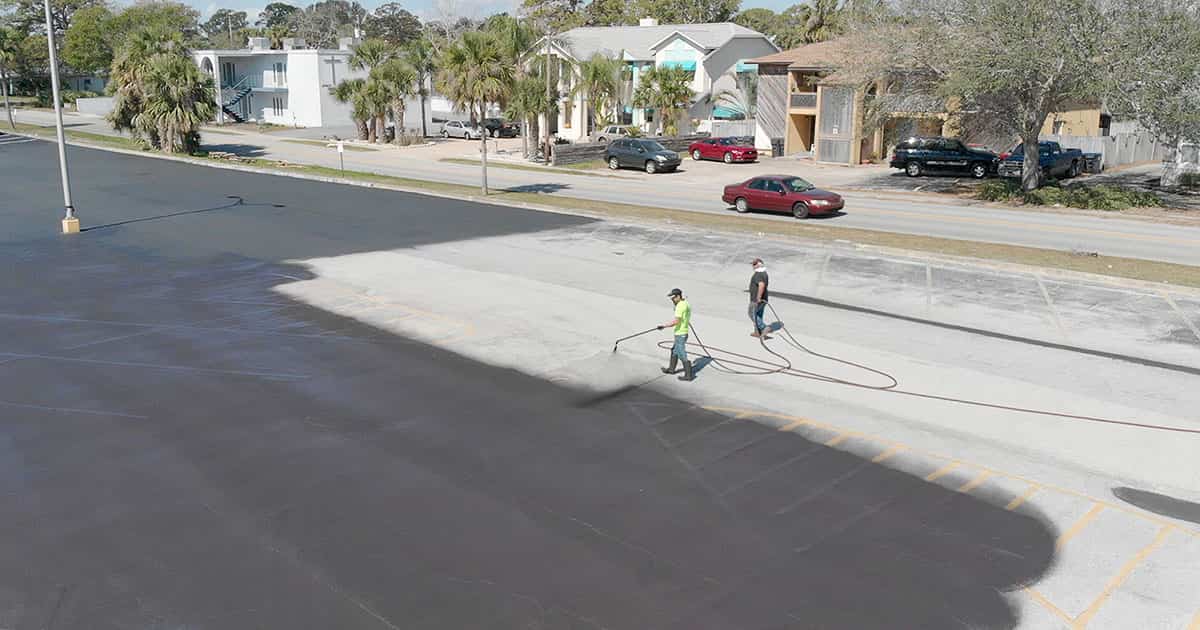Resilient Outcomes: Asphalt Patch Repair Through Precision Sealing
Resilient Outcomes: Asphalt Patch Repair Through Precision Sealing
Blog Article
Cold Mix Asphalt Vs. Hot Mix Asphalt: Which Is Right for You?

Composition Distinctions
Cold mix and hot mix asphalts differ substantially in their structure, with distinctive characteristics that influence their efficiency and applications. Cold mix asphalt is generated by emulsifying the asphalt binder with water and an emulsifying agent before blending it with accumulation. This approach enables the asphalt to be convenient at reduced temperatures, making it perfect for short-term repairs and for usage in colder climate condition. Warm mix asphalt, on the various other hand, is produced at heats, normally in between 300-350 ° F, which assists to accomplish much better compaction and an extra resilient end product. The warm mix asphalt manufacturing process entails warming the aggregate and asphalt binder separately before integrating them at the asphalt plant.
Moreover, cool mix asphalt tends to be much less dense and more adaptable than hot mix asphalt. This flexibility makes it much better fit for areas with higher degrees of activity, such as driveways or roads with hefty web traffic. In contrast, hot mix asphalt is understood for its high durability and resistance to rutting and breaking, making it a recommended choice for highways and high-traffic roadways where longevity is important.
Setup Refine Differences
The procedure of installing cold mix and warm mix asphalt shows significant differences in their needs and procedures. In contrast, hot mix asphalt necessitates a much more intricate installment process. Due to the heating demands, hot mix asphalt installments are usually brought out by specialists with specific devices, ensuring a more structurally sound and permanent outcome.
Toughness and Durability Elements
When thinking about asphalt options, longevity and longevity are vital variables to review for long-term sidewalk efficiency,. Warm mix asphalt (HMA) is understood for its phenomenal longevity and durability. The heats throughout the mixing and laying procedure permit better compaction, leading to a read this post here denser and stronger pavement structure. This leads to HMA being extra immune to rush hour lots, harsh climate condition, and the impacts old contrasted to cold mix asphalt (CMA)
In terms of longevity, HMA generally outmatches CMA as a result of its remarkable toughness and resistance residential properties. HMA sidewalks have a longer service life, requiring much less constant repair services and upkeep, which can convert to cost financial savings in the long run. Furthermore, HMA pavements are more easily customizable to satisfy specific job requirements, even more enhancing their longevity.
Price Factors To Consider
Thinking about the monetary ramifications is an essential aspect when evaluating the choice between warm mix asphalt (HMA) and chilly mix asphalt (CMA) for sidewalk projects. While the initial price of warm mix asphalt is generally greater than that of cool mix asphalt, HMA often gives a more economical solution in the long run due to its superior toughness and durability.
In enhancement to material costs, it's necessary to consider the expenses associated with installation and maintenance when contrasting HMA and CMA. Eventually, the decision in between HMA and CMA must take right into account not just the preliminary cost however also the long-lasting financial effects to establish the most cost-effective alternative for the details pavement project.
Environmental Influence Contrast
Comparison of the ecological influences between hot mix asphalt (HMA) and cool mix asphalt (CMA) discloses unique differences in sustainability practices. HMA manufacturing needs high temperature levels, causing raised power consumption and greenhouse gas exhausts. The process here also launches volatile click here now natural compounds (VOCs) and dangerous air pollutants (HAPs) right into the environment. In comparison, CMA is generated and applied at lower temperatures, lowering energy use and discharges considerably. The lower production temperatures of CMA cause lowered fuel consumption and lower degrees of CO2 discharges, making it a more eco-friendly choice.
In addition, the usage of CMA often involves reusing existing asphalt sidewalk, promoting source preservation and minimizing the quantity of waste sent out to garbage dumps. By opting for CMA over HMA, roadway building projects can contribute positively to ecological conservation efforts.
Verdict
Finally, the choice between chilly mix asphalt (CMA) and hot mix asphalt (HMA) depends upon various variables such as structure, installation procedure, toughness, long life, cost, and ecological impact. asphalt patch repair. While CMA provides a fast and economical solution for minor repair work, HMA guarantees superior sturdiness and durability for rush hour areas. Consider these elements meticulously to identify which type of asphalt is the appropriate choice for your paving needs

Taking into consideration the economic effects is a vital aspect when assessing the selection in between hot mix asphalt (HMA) and cold mix asphalt (CMA) for pavement jobs. While the initial cost of warm mix asphalt is commonly higher than that of chilly mix asphalt, HMA often provides a more cost-efficient service in the long run due to its premium durability and durability. cold mix asphalt.Comparison of the environmental influences between warm mix asphalt (HMA) and chilly mix asphalt (CMA) discloses distinctive differences in sustainability methods.In final thought, the choice between cool mix asphalt (CMA) and hot mix asphalt (HMA) depends on various elements such as structure, installment procedure, resilience, durability, expense, and environmental influence
Report this page